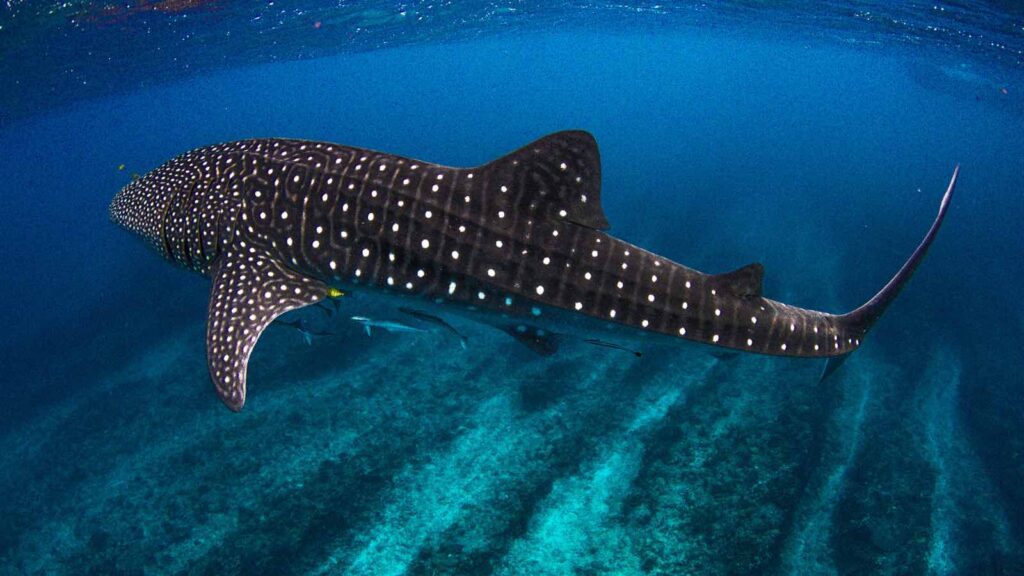Due to rising ocean temperatures, new research reveals that some sharks are abandoning coral reefs — a concerning development for both the cold-blooded predators and the fragile ecosystems they support.
As ocean temperatures rise, coral reefs — and the ecosystems they support — are facing new threats. According to recent research, rising temperatures are causing some shark species, particularly grey reef sharks, to abandon coral reefs, an alarming development for marine life. The study, highlighted by The Guardian, reveals that these cold-blooded predators are spending significantly less time around reefs as waters warm, with some staying away for over 16 months after major heatwaves.
“If it gets too hot, they’re going to need to move,” explained David Jacoby, a zoologist at Lancaster University who led the research. The sharks, he noted, appear to be migrating to deeper, cooler offshore waters. “Some of the sharks were disappearing entirely from the reef for long periods of time.”
RELEVANT SUSTAINABLE GOALS


A Warming Ocean and Disappearing Sharks
Between 2013 and 2020, researchers tracked over 120 grey reef sharks in the Indian Ocean’s Chagos archipelago. They found that while the sharks eventually returned to some reefs, they spent much more time in healthier, more resilient ones. This poses a challenge for ecosystems dependent on sharks for their survival.
Sharks play a crucial role in maintaining the biodiversity of coral reefs by controlling fish populations. Without sharks, the delicate balance of these ecosystems could collapse, leading to widespread ecological consequences. Globally, reef sharks have already disappeared from nearly 20% of coral reefs due to overfishing and habitat destruction, amplifying the urgency of the situation.
Breeding Sharks for a Future Return
Despite these troubling trends, conservation efforts have shown that it’s possible to reverse the damage. A promising example is found in Indonesia’s Raja Ampat archipelago, where two decades ago, coral reefs were on the brink of destruction due to overfishing. Thanks to initiatives supported by Conservation International, the region has become a thriving marine ecosystem once again.
Conservation efforts, including the creation of a network of marine protected areas, have not only allowed coral reefs to recover but also brought back marine life such as sharks, manta rays, and whales. This has become the backdrop for an ambitious new project: the reintroduction of zebra sharks, a species that has nearly disappeared from the area.
In a pioneering effort, scientists are breeding endangered zebra sharks in captivity and releasing them into the wild. Last year, three zebra shark pups were released into the waters of Raja Ampat — marking the first time that endangered sharks bred in captivity have been reintroduced to restore a struggling population. This project offers a new model for shark conservation, giving the species a chance to rebound from the brink of extinction.
“Sharks are some of the most misunderstood, and threatened, species on the planet,” said Mark Erdmann, the Conservation International marine biologist behind the initiative. “We have an opportunity to give them a fighting chance.”
As climate change accelerates, the challenges for coral reefs and the sharks that inhabit them will only intensify. But as the success in Raja Ampat shows, with the right strategies and international cooperation, there is hope for these ecosystems. The time to act is now — before more coral reefs lose their vital guardians.
Lead image courtesy of indianoceanimagery from Getty Images (incredible photo of a whale shark in the clearest water imaginable over coral reef at Ningaloo)





This Post Has One Comment
helloI like your writing very so much proportion we keep up a correspondence extra approximately your post on AOL I need an expert in this space to unravel my problem May be that is you Taking a look forward to see you
Comments are closed.